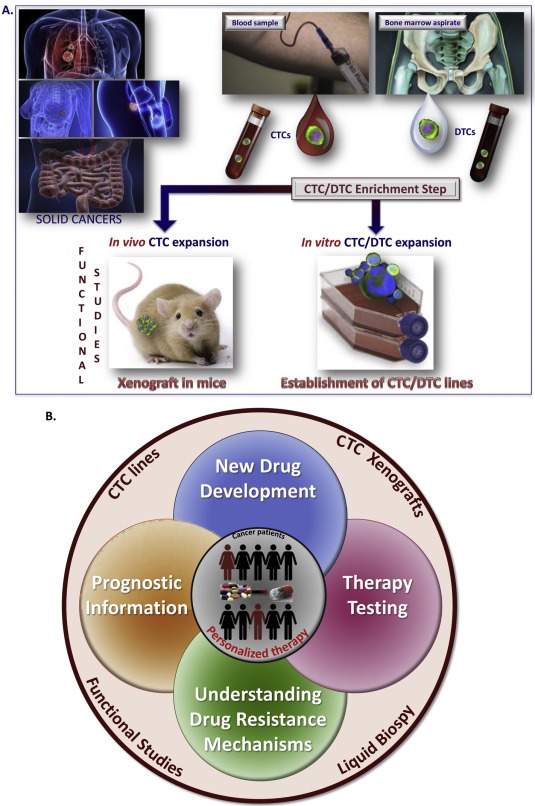Figure 1.

Functional studies with CTCs and DTCs using in vitro and/or in vivo models for personalized clinical management of patients with solid cancers. A. CTCs and DTCs are first enriched from blood samples or bone marrow aspirates of cancer patients (i.e., lung, breast, prostate, colon cancer), respectively. CTCs or DTCs are subsequently expanded in special culture medium or in immunodeficient mice. The last step is getting CTC/DTC lines or xenografts, respectively. B. Viable CTCs can be enumerated using a functional assay (EPISPOT assay) leading to prognostic information. CTCs can be cultured in vitro and an in‐depth characterization of established CTC lines may identify metastasis‐initiator cells, a crucial point for new drug development. To potentially eradicate metastatic disease, CTCs can be expanded in vivo for therapy testing and better understanding of drug resistance mechanisms.
